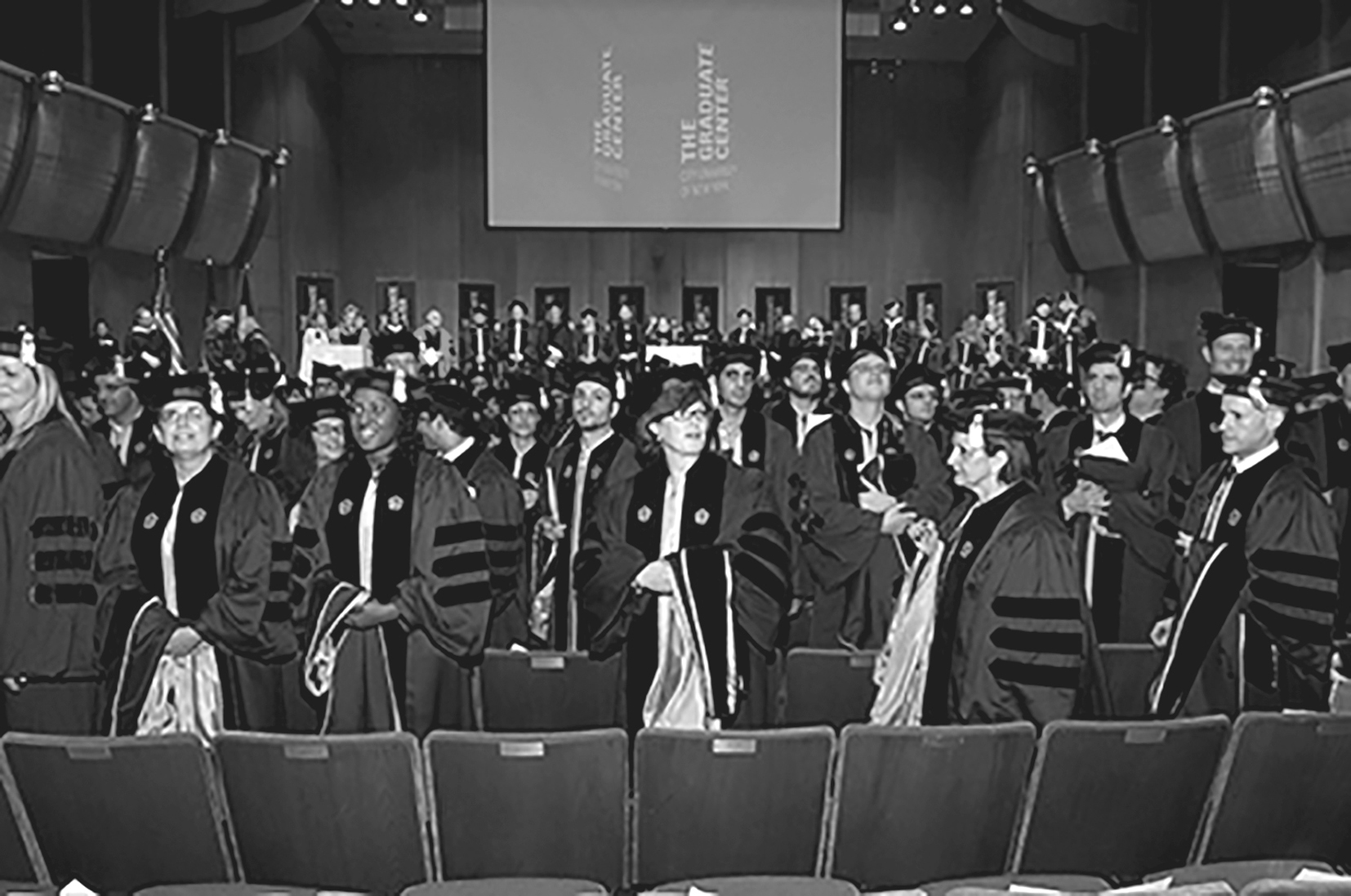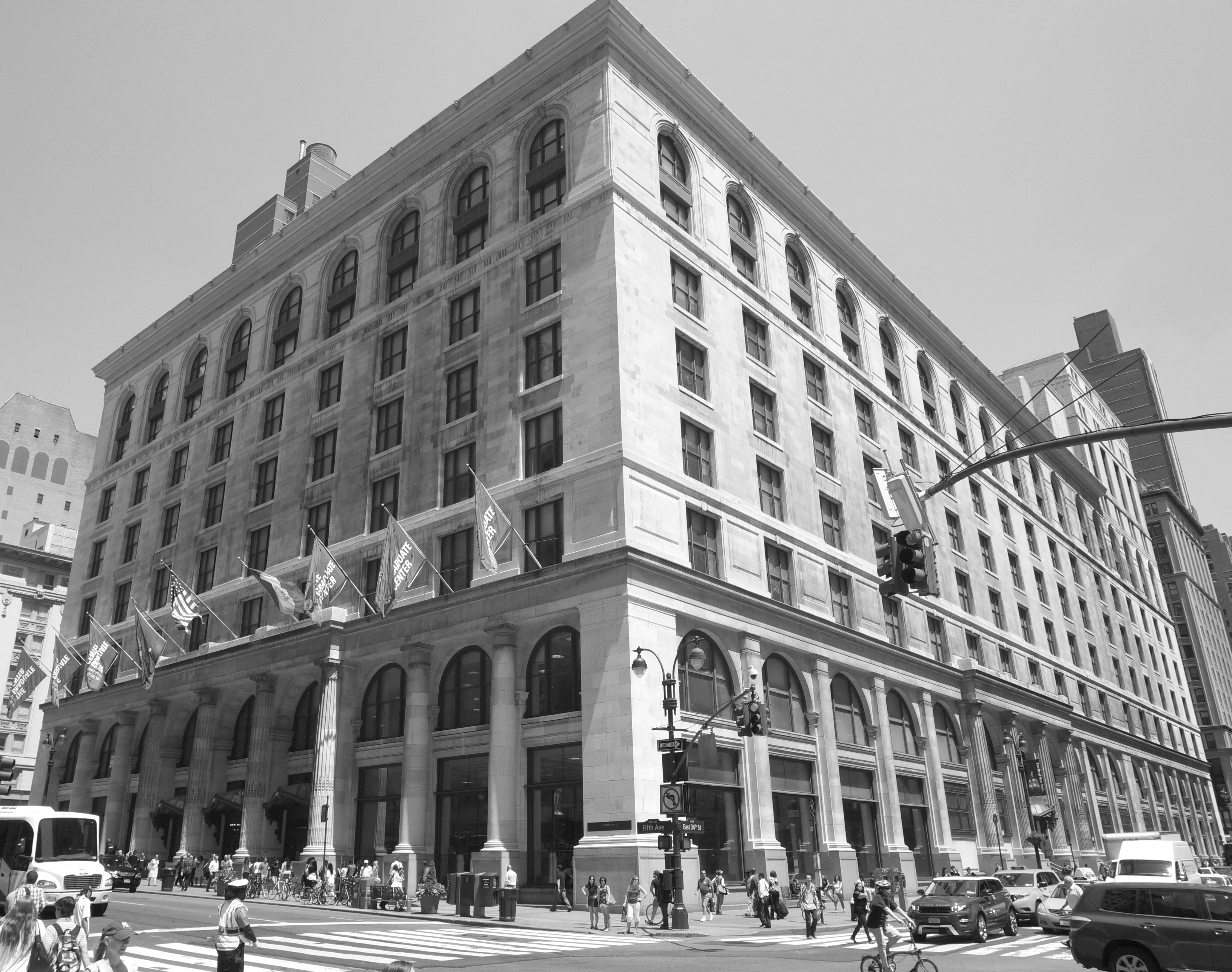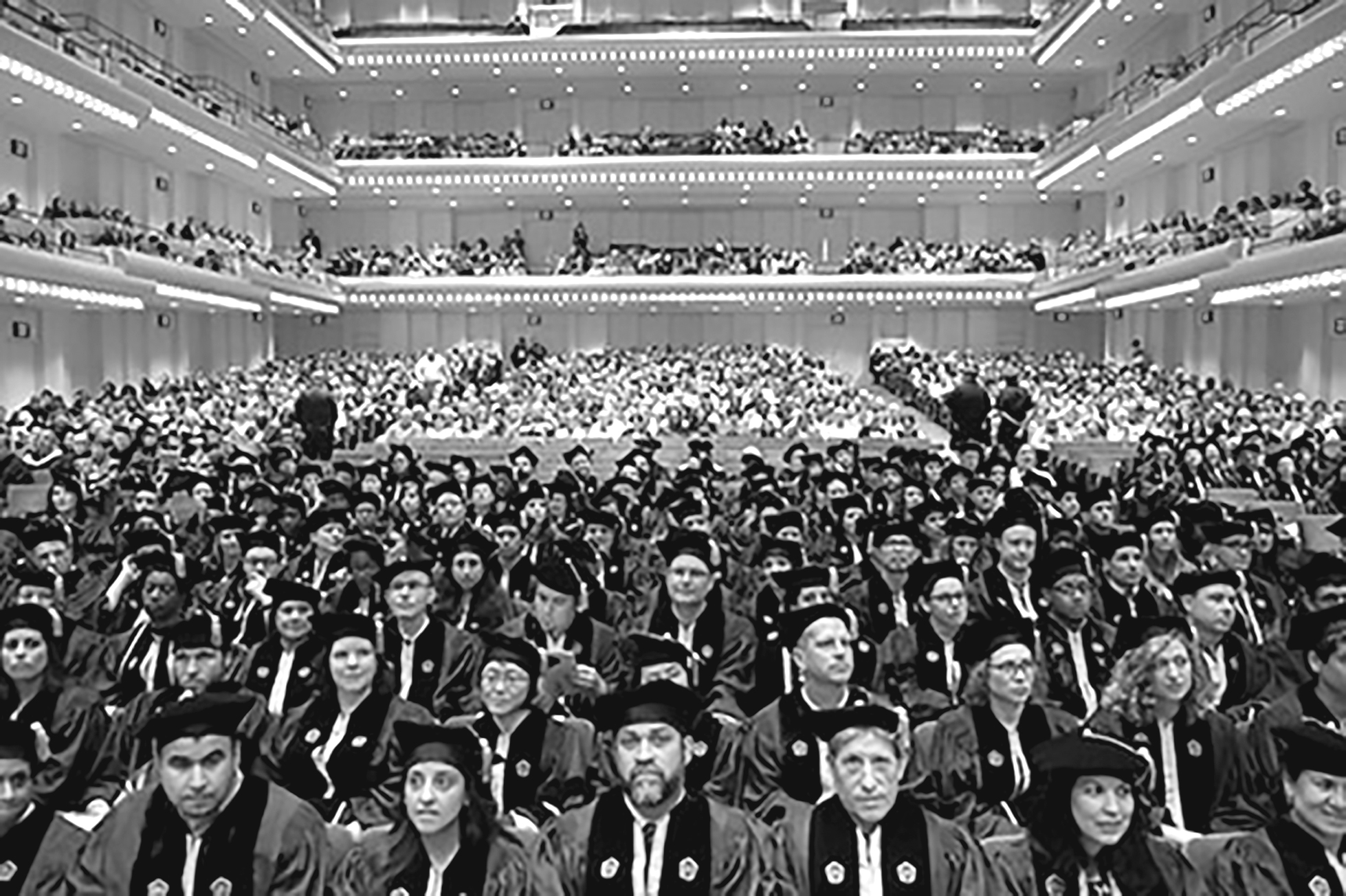The Adjunct Project
 On Friday, 27 April, the Doctoral and Graduate Students’ Council of the Graduate Center passed a resolution calling for the full and fair funding of all GC doctoral students (please see the text of the resolution at the end of the article). Created by the Adjunct Project (AP) in close collaboration with several GC doctoral students, the resolution details the problem of underfunding at the GC and offers steps for remedying this inequity.
On Friday, 27 April, the Doctoral and Graduate Students’ Council of the Graduate Center passed a resolution calling for the full and fair funding of all GC doctoral students (please see the text of the resolution at the end of the article). Created by the Adjunct Project (AP) in close collaboration with several GC doctoral students, the resolution details the problem of underfunding at the GC and offers steps for remedying this inequity.
Although the funding inequities at the GC have been an issue of the AP going back many years, they became a primary initiative of the AP this past spring semester, thanks largely to the experiences and commitment of AP co-coordinator Lynne Turner, a sociology Ph.D. student going into her fifth year at the GC. Entering the program with only a five-year tuition fellowship, supplemented by occasional temporary Graduate Assistantship D lines, Turner, like many GC doctoral students, lived with ongoing uncertainty about her livelihood and her path toward a degree. Though she now has a Mellon Humanities Alliance fellowship beginning this fall, Turner’s difficulties prompted the AP coordinators to seek a permanent fix for this urgent issue — for the sake of all GC doctoral students, whether they receive full funding through a Graduate Center Fellowship or not. The issue of funding binds us together as GC doctoral students, from the admissions process through to the attainment of the Ph.D.
 To maximize feedback and collaboration, the AP created a working group on the issue comprising several GC doctoral students, who started the campaign for full and fair funding along with the AP coordinators, eventually leading to the DSC resolution. We’ve also produced stickers highlighting the campaign, are starting to collect student testimonials, and will be releasing a survey to collect the funding data the GC has so far denied us (see Turner’s testimonial below for more details). Indeed, we’re excited to take this campaign to the next level in the fall!
To maximize feedback and collaboration, the AP created a working group on the issue comprising several GC doctoral students, who started the campaign for full and fair funding along with the AP coordinators, eventually leading to the DSC resolution. We’ve also produced stickers highlighting the campaign, are starting to collect student testimonials, and will be releasing a survey to collect the funding data the GC has so far denied us (see Turner’s testimonial below for more details). Indeed, we’re excited to take this campaign to the next level in the fall!
To that end, the following testimonials from Turner and Merrit Corrigan, Thayer Hastings, and James Tolleson — all members of the campaign working group — amplify how the lack of full and fair funding affects them — and, by extension, all GC doctoral students.
I had been a union and community organizer for many years prior to entering the doctoral program and, through the Adjunct Project and as a member of the union, I have been organizing for parity for adjuncts, including a livable wage of $7,000 per course. The two-tiered funding system at the Graduate Center is generally kept under the radar, the unnoticed elephant in the room, leading to our decision at the Adjunct Project to make this an organizing priority as well.
Personally, it took a while for it to sink in how stark the inequality was and the outsized obstacles this presented for me and other underfunded doctoral students. Each semester entailed an exorbitant effort to reconstitute an income and health insurance from contingent adjunct and research jobs — time and mental energy allocated just to obtain work and juggle multiple jobs rather than focused progress within our doctoral programs. I was on my department’s admissions committee and could observe how competitive the ranking process is, which can negatively impact admissions and funding prospects for non-traditional and working-class students. I am convinced that there is no justification for this inequity based upon merit.
This spring, I co-signed a FOIL request submitted by the GC PSC chapter and the Adjunct Project to obtain information linking levels of funding to demographic information as well as timely progress towards degree and successful outcomes. Our FOIL request and subsequent appeal were denied based upon the claim that since the GC doesn’t collect this information it would require substantial computer programming to obtain it. It’s mind-boggling that the GC doesn’t consider it within their purview to examine how institutional funding, or lack thereof, aids or hinders student progress and successful outcomes, raising concerns about both transparency and political will to back up the GC’s stated commitment to diversity and inclusion with concrete measures to provide the support necessary to engender success.
— Lynne Turner
I was thrilled when I got the news that I was off the waiting list and in reach of a tuition-only fellowship. I consulted with current students and considered waiting to re-apply for the following year, but from my view, in a $10.50-per-hour service job, I couldn’t pass up the opportunity. My partner agreed that we could take on the financial burden together. Although we’re “making it,” I’m convinced that the two-tiered system significantly harms the GC’s ability to create a space for doctoral students to thrive.
Every semester I seek out adjunct teaching positions to help support myself, but neither steady work nor pay is guaranteed. This semester one of my discussion sections was dropped, and my pay was cut nearly in half, due to low student enrollment. I also spend significant amounts of time searching, applying, interviewing, and waiting for other potential sources of income, which leaves me in a state of uncertainty about funding for next year, not to mention the next 3, 4, 5 years of my program. Applying for dissertation and “write-up” grants will be hard enough! We need full and fair funding to eliminate this additional stress and make the GC a top-notch setting for all doctoral students.
— James Tolleson
I entered the Graduate Center with a tuition-only fellowship nervous and unsure how I would pay rent, access health insurance when I turned 26, or feel as though I belonged in the stratified doctoral community. Tuition-only fellowships make for a precarious doctoral student experience. Each semester the relief I felt progressing in study was clouded by the worry that it may no longer be possible financially to continue on in a few months. Although I now have three years of funding through a GC Digital Initiatives fellowship, this veil of uncertainty, impacting individual scholarship and our larger learning community, will continue to hang over the GC until we have full and fair funding for all students.
— Merrit Corrigan
It is hard enough living in New York City on the full Graduate Center fellowship. Members of my cohort without stipends are put in a near impossible situation and are forced to devote large amounts of their time to additional teaching, working outside jobs, and applying for internal and external grants. Even only in the first year of my program, underfunding has taken its toll. The students without full funding are clearly carrying a heavier burden than the rest of us and that affects their ability to prepare for classes and participate more broadly. This is a loss for my cohort and the GC community as a whole. The difference between “full” and partial funding is in degrees of precarity.
— Thayer Hastings
Not having funding to complete my dissertation has been a heavy burden, as it has put me back at least a year as I try to cobble together the money to pay tuition and fees and to complete my research. My advisor has been a great help in getting me funding, but those efforts do not make up for the structural failings of the Graduate Center to provide full and equal funding for all of us studying here. I have had to take on teaching an extra class as an adjunct for a total of three, in addition to a consulting gig, and working as one of the co-coordinators at the Adjunct Project in order to save money in NYC to do my field work in an international setting.
I love teaching and working with my students, but it is sad that the lack of a transparent and just funding structure by the GC makes us choose one or the other in this imposed zero-sum equation. This is clearly an issue of how class, gender, race, and sexuality oppression put many of us even further behind in creating an even playing field or successful efforts to value its students’ diversity by the GC.
— Rafael A. Mutis
If you’d like to get involved in the campaign for full and fair funding, whether by sending us a testimonial or contributing in another way, email the AP at theadjunctproject@gmail.com. And make sure to check out the section of our website dedicated to this issue at http://cunyadjunctproject.org/funding/. We’ll be updating it throughout the campaign.

